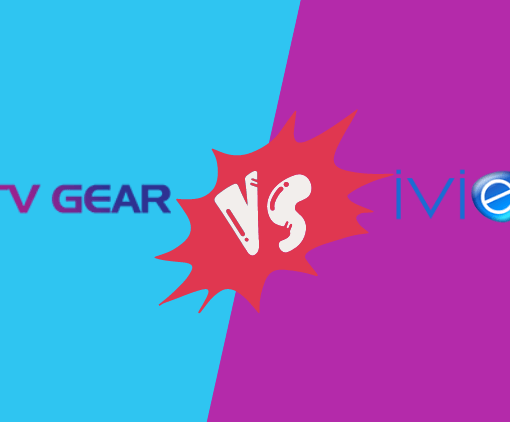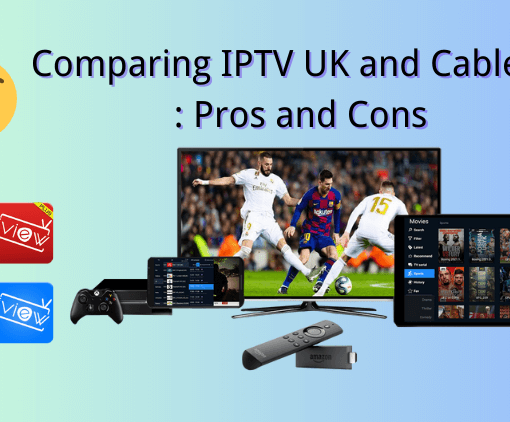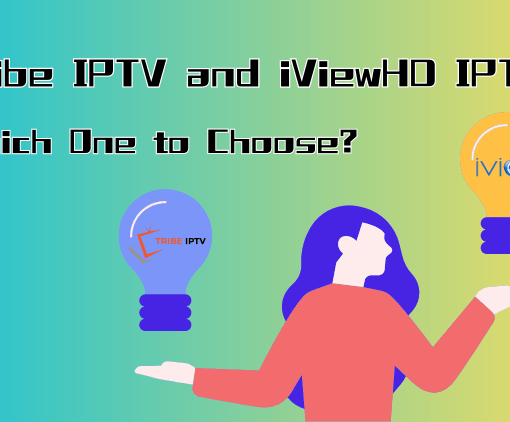IPTV refers to the technology that transmits video content over the Internet. It offers a new way to watch television. With the popularization of broadband network and the continuous development of Internet technology. more and more people begin to use IPTV. So why use IPTV? Next, we’ll explore the benefits of IPTV and its future trends.

Table of Contents
What is IPTV
IPTV stands for Internet Protocol Television and uses technology that delivers live television programming over the Internet rather than through an antenna, satellite dish, or fiber optic cable. In other words, IPTV streams video content in real time over the Internet.
While IPTV content delivery is different from online video-sharing platforms such as YouTube or OTT services such as Netflix, it shares many conveniences. For example, IPTV allows subscribers to access video-on-demand (VOD) content and watch live streams in a subscription-based model. This gives viewers the freedom to access their favorite programs at will, while still having the option to enjoy live events and programming as they would on traditional TV.
This flexibility is why IPTV surpasses traditional television and is considered the future of television. IPTV UK.
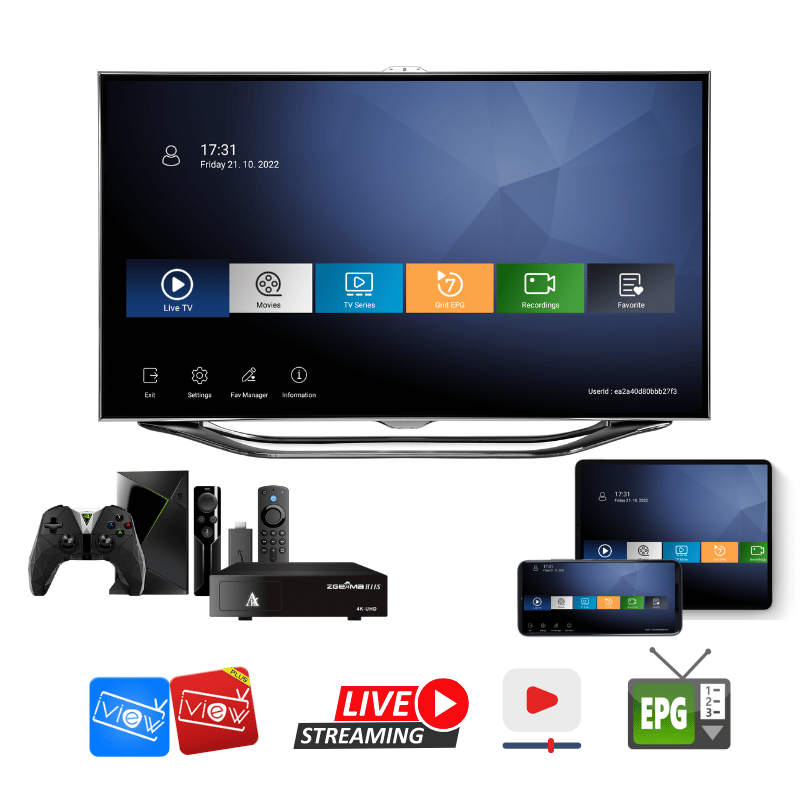
72-Hour IPTV Free Trial
- +1300 Live TV channels
- +3000 Movies & Sports Events
- TV Guide (EPG)
- Plus with Catch Up & Cloud PVR
- Reliable & Stable Server
- Supported to Android & Firestick
- IPTV Instant Activation, No CC
What types of IPTV are there?
There are three different IPTV formats. We will take a look at each of them.
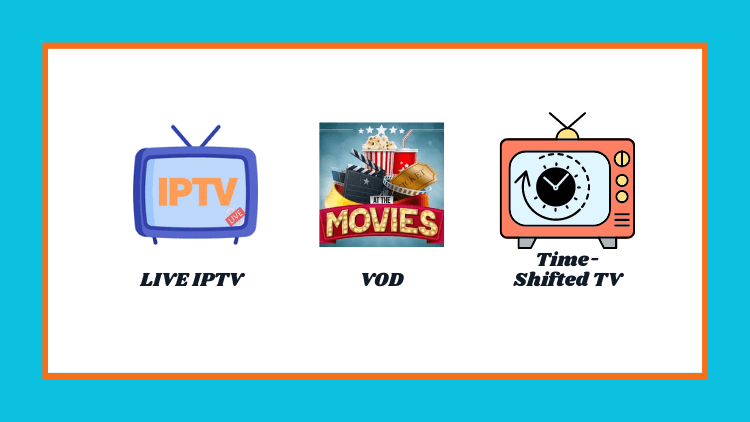
Video-on-demand (VOD)
VOD IPTV services work in the same way as most OTT providers – you pay a subscription fee and in return, you get access to a large library of videos that you can request to watch at any time.
This model is particularly attractive to consumers because it offers incredible flexibility.
Netflix, Hulu, and Amazon Prime Video are popular examples of OTT video streaming services. A growing number of IPTV providers have been introducing on-demand services in response to the growing popularity of OTT streaming platforms such as Netflix, Hulu, and Amazon Prime Video.
Live IPTV
Just like traditional TV, you can watch live programming on IPTV. Many people watch live events such as sporting events and conferences this way; it’s also easy to stream games on your phone while you’re on the go.
Live IPTV is virtually identical to regular TV except that it is broadcast over the Internet rather than through traditional cable media.
This type has the same drawbacks as dying cable TV. Users can’t choose when to watch content, but the flexibility of IPTV allows you to watch content whenever and wherever you want.
FOX Sports Go, CBS Sports HQ, Hulu Live TV, and Sling TV all offer live IPTV.
Time-Shifted TV / Catch-Up TV
If you have seen Catch Up TV, then you are familiar with this type of IPTV. time-shifted TV or catch up TV is a service unique to IPTV that allows users to time-shift TV or catch-up TV is a service unique to IPTV that allows users to watch previously aired TV shows later.
The important difference between time-shifted media and VOD is that time-shifted TV allows subscribers to re-watch old content for only a limited period of time. In most cases, broadcasts last a few days before they disappear. You can’t go back and watch an episode of a show you missed years ago (but you can watch it on VOD).
How does IPTV work
While traditional TV sends analog signals to subscribers over cable, IPTV sends analog signals over a hosted, private Internet network. Unlike traditional TV, which can only broadcast content in real time, IPTV has servers for storing content. This gives subscribers the freedom to watch programming as often as they like (if their IPTV provider allows this option).
The entire content delivery process is very simple and can be illustrated in a few steps.
- the subscriber requests to watch a specific program and the IPTV provider receives the request. 2. the IPTV provider processes the request and transmits the video stream from its server to the end user.
- the IPTV provider processes the request and transmits the video stream from its servers to the end user. 3. the content stream flows over a secure private network to the gateway at the subscriber’s end.
- the content stream flows through a secure private network to the gateway at the subscriber’s end. 4.
- the content is delivered as packets to the playback device via Real Time Streaming Protocol (RTSP) and then compressed to optimize playback.
But for all of the above to be possible, your TV must be able to read the signals received over the Internet protocol. Unfortunately, not all TVs can be set up for IPTV service right away, as most TVs cannot read the signals received without external help. If you have a TV that is not IPTV compatible, you will have to purchase an IPTV set-top box.
Why Use IPTV
Some of the top benefits of IPTV are listed below:
- Flexibility: IPTV allows you to choose what you want to watch and when you want to watch it, giving you complete control over your viewing experience.
- High-Quality Streaming: IPTV provides high-quality video streams with minimal buffering, offering a seamless viewing experience.
- Wide Content Selection: IPTV offers a vast selection of content, including live TV channels, movies, TV shows, and other video content from around the world.
- Interactive Features: IPTV provides interactive features such as electronic programming guides (EPGs), pause and rewind live TV, and the ability to record shows for later viewing.
- Cost-effective: IPTV can be more cost-effective than traditional cable or satellite TV, as there are usually no installation costs and lower monthly fees.
- Device Compatibility: IPTV can be viewed on a variety of devices, including smart TVs, smartphones, tablets, and set-top boxes, making it accessible from anywhere.
The Future of IPTV
The global pandemic Covid-19 offers a temporary but important prospect for the growth of the IPTV market. The confinement of people to their homes has boosted the demand for subscriptions to Internet Protocol television services.
The global IPTV market size was valued at USD 48.22 billion in 2020 and is expected to reach USD 104.51 billion by 2026, growing at a CAGR of 12.9% during the forecast period. (Source: ResearchAndMarkets)
The IPTV market is huge, with new providers entering the industry every day. This is part of the reason for the rapid growth in demand for IPTV. The following are some IPTV statistics to better illustrate the rapid growth of the market.
- The global demand for IPTV services is growing at a rate of 30-35% per year.
- There are currently over one billion subscribers to IPTV services worldwide.
- IPTV is most popular in European countries such as France, Germany, and the UK. These countries currently have the largest IPTV market share.
- India is currently the fastest-growing IPTV market and is likely to overtake its European counterparts within a few years.
Is IPTV Legal?
The legality of IPTV depends on the country and specific service in question. In some countries, IPTV is completely legal and operates as a legitimate cable or satellite alternative. In other countries, IPTV is considered illegal if it is used to distribute copyrighted content without proper authorization.
Many IPTV services obtain the necessary rights to broadcast television channels and offer their services legally. However, there are also many illegal IPTV services that offer a large number of channels, including premium channels, without the proper authorization to do so. These illegal services are often referred to as “pirate IPTV” and can be subject to legal action by the rights holders of the copyrighted content.
It’s important to research and verify the legality of an IPTV service before subscribing to it. Using illegal IPTV services not only exposes users to potential legal consequences but also raises serious concerns about privacy and security.
Why are more and more people turning to IPTV for entertainment?
With the continuous progress of technology, IPTV has become a very convenient form of entertainment. Here are some of the reasons that might lead people to switch their IPtvs to entertainment:
- 1. Rich content: IPTV can provide a variety of entertainment content, including movies, TV programs, and sports events. and concerts. and news. This means that viewers can enjoy high-quality entertainment content whenever and wherever they want without having to wait for a specific time at home or in front of the TV.
- 2. Higher freedom: Through IPTV, viewers can watch programs at their own pace. They can pause, rewind, or fast-forward a show to better fit their schedules and interests.
- 3. Competitive pricing: IPtvs are often more affordable than traditional cable services. Many service providers also offer different packages to meet the needs of viewers.
- 4. Better quality: Watching content via IPTV provides higher video and audio quality. as well as a more consistent signal and faster streaming speeds. This allows viewers to enjoy a better viewing experience.
To sum up, IPTV provides people with a better and more convenient viewing experience. These factors may lead more and more people to turn their IPtvs into entertainment.
Popular IPTV Service Providers
There are hundreds of IPTV service providers out there, and the features and programs they offer will vary depending on the country or state you’re in. Here are some of the most popular IPTV providers in the US and UK.
- Yeah IPTV
- XtrixTV IPTV
- IPTV ATV
- IviewHD IPTV
- OTV IPTV
- Strong IPTV
- King IPTV
- FalconTV
- Kemo IPTV
Check out our IviewHD IPTV review of the Best IPTV subscription .
FAQ
What does IPTV stand for?
IPTV stands for Internet Protocol Television. IPTV technology delivers content over closed, private networks rather than antennas, satellite dishes, or fiber optic cables.
Is IPTV Better than Cable?
The answer to whether IPTV is better than cable television depends on several factors, including personal preferences and individual needs.
Advantages of IPTV over cable TV:
Flexibility: IPTV can be watched on a variety of devices, including smartphones, laptops, and smart TVs, allowing for greater flexibility in how and where you watch television.
Customization: IPTV often offers a more customizable viewing experience, with the ability to choose individual channels and create a personalized lineup.
Interactivity: IPTV can offer interactive features, such as the ability to pause, rewind, or record live TV, as well as access to on-demand content.
Quality: IPTV can offer better picture and sound quality, especially if using high-speed internet.
Advantages of cable TV over IPTV:
Reliability: Cable TV is typically more reliable than IPTV, as it is not subject to the same internet outages and buffering issues that IPTV can experience.
Wide Availability: Cable TV is available in most areas and is widely accessible, whereas IPTV may not be available in all areas or may require a fast and stable internet connection.
Channel Selection: Cable TV often offers a wider range of channels and programming options.
Ultimately, the choice between IPTV and cable TV comes down to individual needs and preferences, as well as the available options in your area.
How Much Does IPTV Cost?
The cost of IPTV can vary depending on the specific service and the number of channels offered. Some IPTV providers offer their services for as little as $5 to $15 per month, while others can cost upwards of $50 or more per month.
The cost of IPTV can also vary based on the quality and reliability of the service, as well as the number of channels offered. Premium IPTV providers may offer a larger selection of channels, as well as features such as high-definition video, DVR functionality, and access to on-demand content.
It’s important to compare different IPTV providers and their offerings in order to determine the best value for your money. It’s also important to consider the cost of the necessary hardware, such as a set-top box or a compatible device, when determining the total cost of an IPTV service.
Are IPTV services available in all countries?
IPTV services are available in many countries, but their availability can vary based on several factors such as local regulations, copyright laws, and the level of competition in the market. In some countries, IPTV services are widely available and are offered by a number of providers. In other countries, IPTV services may be restricted or unavailable due to legal or regulatory constraints.
It’s important to research the availability of IPTV services in your specific country before subscribing to a service, as the legality and availability of IPTV can vary from country to country. In addition, using an IPTV service that operates in violation of local laws or regulations can result in legal consequences.
Should you use a VPN with IPTV services?
Using a VPN (Virtual Private Network) with IPTV services is not necessary in all cases, but it can have some benefits. Here are some reasons why you may want to use a VPN with IPTV:
Access to geo-restricted content: Some IPTV services may be restricted to specific geographic regions. Using a VPN can allow you to access these services from other regions.
Privacy: IPTV services can collect a lot of data about your viewing habits, and this information can be shared with third parties. Using a VPN can encrypt your internet traffic and protect your privacy.
Avoiding ISP throttling: Some internet service providers (ISPs) may throttle or slow down the speed of IPTV traffic, which can result in buffering and reduced quality. Using a VPN can help to avoid this issue by encrypting your IPTV traffic.
Avoiding legal consequences: In some countries, IPTV services and the use of certain types of content may be illegal. Using a VPN can help to hide your IP address and online activity from your ISP and the authorities.
However, it’s important to note that using a VPN with IPTV services is not a guarantee of privacy or security, and it may also violate the terms of service of your IPTV provider. Additionally, using a VPN may slow down your internet speed, and some IPTV providers may actively block VPN traffic.
Conclusion
To sum up, IPTV is a fast, convenient and affordable way to watch TV. It offers many benefits, including high definition, multi-language support, programming freedom and interactivity. IPTV is becoming the mainstream choice of TV in the future, and more and more people are beginning to realize its advantages. If you’re looking for a better way to watch TV, try IPTV.

